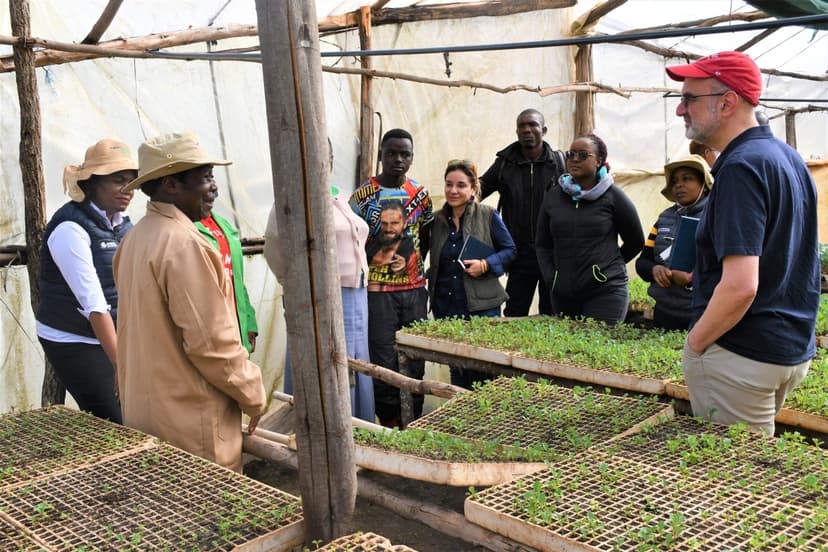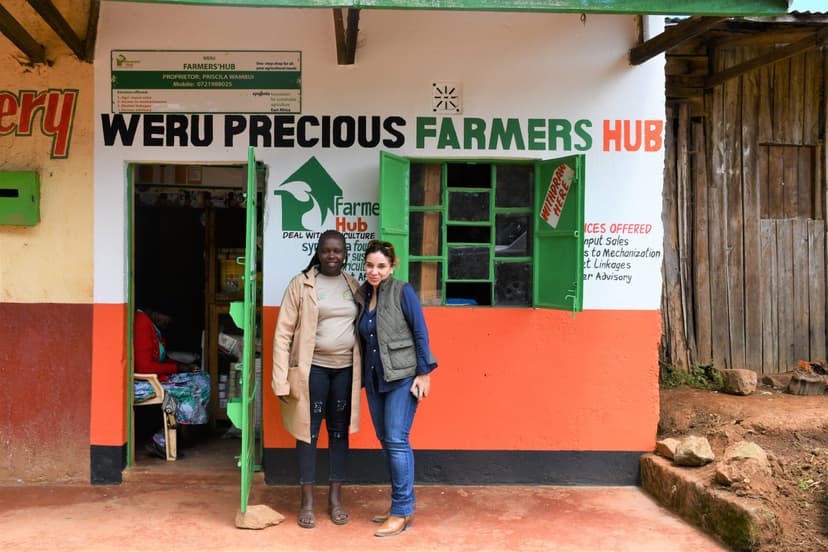A Taste for Tilapia

Our Foundation usually concentrates on plant crops. But in the NICE project, fish also plays an important role. Shifting activities from field to lake can be challenging for farmers. But with due care, “swimmers are winners”.
Early on market day, the Hainja Farmers’ Hub in Port Victoria, Busia County, is already abuzz. Women like Nelly Netima keep records of the tilapia being harvested from cages in Lake Victoria. Others like Janet Namwamba are busy selling the fresh fish they have just bought at Mulukoba Beach. For consumers in this part of Kenya, fish forms a popular and important part of healthy diets.
Peter Lucas Hainja joined NICE* in 2022. Before getting into fish farming, he grew African Leafy Vegetables. However, as he lives several kilometers from the lake, access to water was limited. This made it hard to produce such crops year-round. Hainja decided that tilapia would be an attractive alternative. Fish farming is lucrative and less affected by seasonal changes.
Hainja saved up to finance his new venture; NICE provided training. At first, things did not go well. He received 2500 fish to kickstart his enterprise, but soon had only 100 left. Thieves stole many at night, and the cage “caretakers” sold Hainja’s fish feed to other people. Accurate counting of the fingerlings sold was a further challenge.
However, years of experience in agriculture gave Hainja the confidence to continue with his Farmers’ Hub business. The establishment of a Beach Management Unit tackled the thefts. “We collectively installed cameras and floodlights and hired guards”, Peter Lucas Hainja explains. “That has reduced theft cases to almost none.” Capacity-building by NICE enabled the Hub to improve its feeding regimes and stocking solutions. Hainja now concentrates on 10-gram fingerlings. They are easier to count and mature faster. That change has “hugely impacted our yields and earnings”, he adds.
The adult tilapia live in large, connected enclosures at the lake surface. In these cages, the fish are fed until they reach the right size for consumption. They are then harvested, weighed, and sorted for sale. Having the fish in cages lets farmers monitor the animals’ growth and immediate environment. Careful checking increases yields and profits.
Fish fits excellently with NICE. It is nutritious, tasty and contributes significantly to increased food security. The value chain provides employment for many young people. As Peter Lucas Hainja puts it: “With tilapia, the whole community benefits.”
The Swiss Agency for Development and Cooperation’s (SDC) Nutrition in City Ecosystems (NICE) project connects the demand- and supply-side of food systems, engages women and youth – including through social business models – and builds local governance capacity in Kenya, Rwanda, and Bangladesh. In Kenya, this project is being undertaken in Bungoma and Busia counties. In Switzerland, our consortium partners are Swiss TPH, ETH Zürich and Sight & Life.
Disclaimer: This write-up was created by the Syngenta Foundation for Sustainable Agriculture (SFSA), now rebranded as the Sustainable Agriculture Foundation (SAF).
Share










